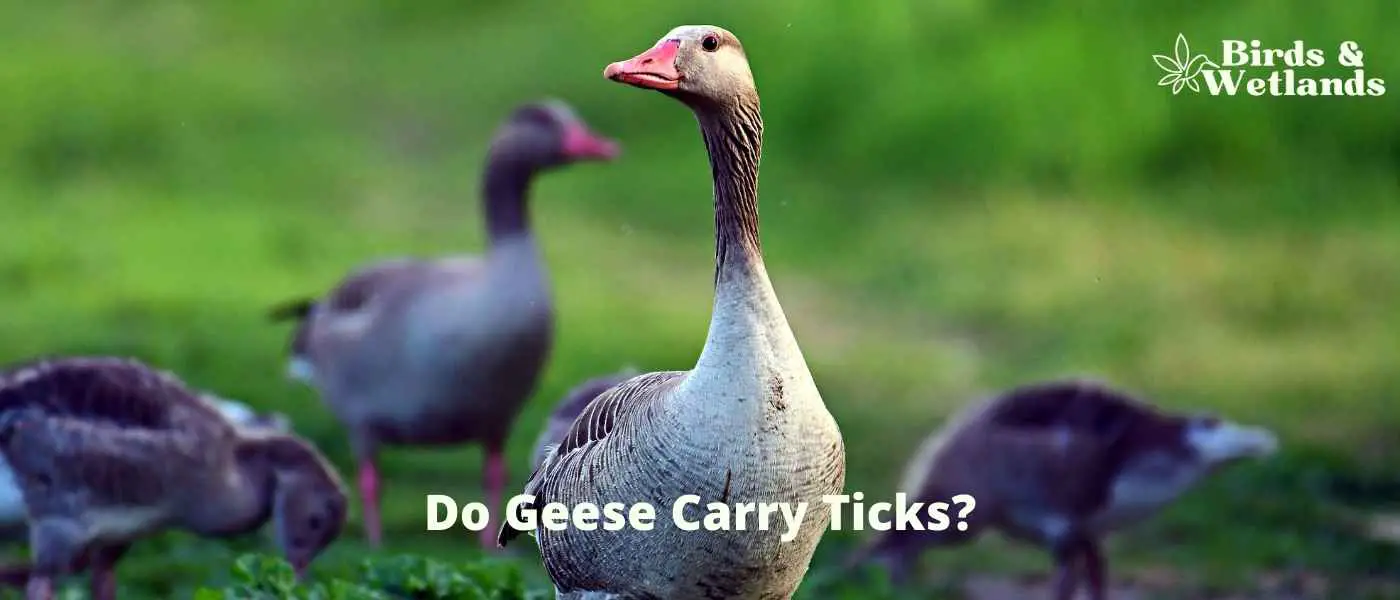One common carrier of ticks is the Canada Goose. These large migratory birds typically travel to warmer climates during winter, but if Canada geese are carrying any attached ticks when they leave, those bloodsucking insects travel with them.
Ticks can attach themselves to Canada geese around the eyes and bill. Most ticks on a goose’s body will be removed during preening, but ticks latched onto the head and neck can be hard to get off. Ticks do not stay attached to their host very long.
Do Geese Eat Ticks?
Yes, Canada geese will consume ticks if they are present in the environment although it’s not on their main menu. Canadian geese are mostly herbivorous, however, so their impact on the tick population is likely to be minimal. If you are looking to control the tick population on your property, it is best to consult with a professional.
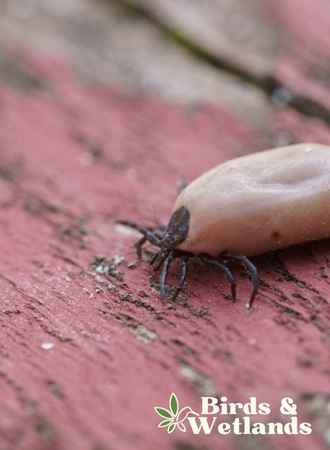
Do Canadian Geese carry diseases?
Geese can transmit the same bacteria that affect other birds, including salmonella, E. coli, and listeria. Additionally, they can carry a strain of bird flu which can infect humans.
Geese are often found in parks, golf course, and near bodies of water and grass, where they can come into contact with people.
It is important to be aware of the risk of diseases that geese can transmit and to take steps to avoid contact with them if possible. If you must come into contact with a goose in your yard, be sure to wash your hands thoroughly afterward.
What Parasites Do Canada Geese Carry?
Canadian geese are known to carry a variety of parasites, including cryptosporidium, giardia, coliform, and campylobacter. These parasites can cause serious illness in humans, so it is important to avoid contact with goose feces and nasal discharge.
Symptoms of cryptosporidium, giardia, coliform, and campylobacter can include watery diarrhea, abdominal cramps, nausea, vomiting, and fever. These parasites can be deadly, especially to young children and the elderly.
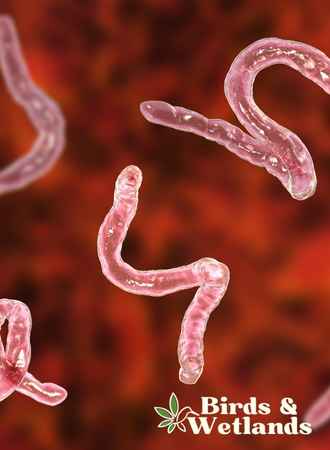
Conclusion on Do Geese Carry a Tick
If you wonder if geese can be carrying ticks with them. the answer is yes. Most goose species are at risk of carrying a tick, lice, and fleas, especially the migratory ones. They can bring these pests with them as they fly south.
And they tend to spread these bugs to other birds and animals such as family dogs, cats, and livestock. If there are geese nesting in your yard, check ticks on tall grass and trees, and don’t let your dog or cat near them.
FAQs on Geese and Ticks
What Attracts Ticks?
Ticks are attracted to warm, moist environments where they can find shade and places to hide. Tall grass, ground cover, and shrubs are some of the places ticks take up residence. Because ticks are often found in people’s hair, people may think they like to hang out in trees.
However, ticks actually prefer to remain close to the ground where there is high humidity.
Ticks are blood-sucking parasites that attach themselves to the skin of their host in order to feed. Ticks can transmit diseases to their hosts, so it is important to take measures to avoid them.
Wearing long pants and long sleeves when outdoors, using insect repellent, and performing regular tick checks are all good ways to prevent ticks.
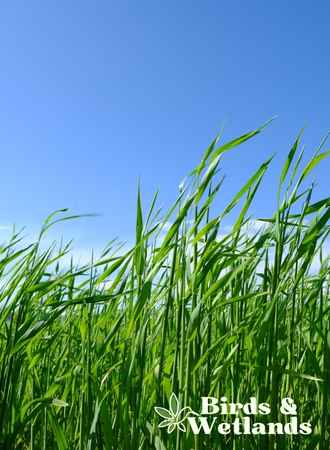
Do Ducks and Chickens Eat Ticks?
Yes, almost any breed of ducks and chickens will eat ticks. In fact, they will eat just about any type of insect, including mosquitoes, moths, flies, and beetles. This makes them great allies in the fight against disease-carrying pests although they don’t consume them in large quantities.
Do Wild Birds Get Fleas or Ticks?
It’s possible for wild birds to pick up fleas or ticks, but it’s not very common. Small birds that live in close contact with other creatures, such as chickens or ducks, are more likely to get these parasites. Fleas are prevalent in the spring, during the nesting season.
Additionally, young birds can suffer serious health problems if they’re infested with fleas. Likewise, game birds and songbirds can also become a host of ticks and fleas.
The best way to prevent your bird from getting fleas or ticks is to keep them away from other creatures. If you suspect your bird has fleas or ticks, especially if you notice them on the beak, take them to the vet for treatment.
Do Birds Eat Fleas and Ticks?
Yes, many birds will eat ticks and fleas. This includes chickens, turkeys, and guinea fowl. The birds will help keep the population of fleas and deer ticks down in an area.
This is beneficial to both farmers and animals who share the same environment with the birds. However, using these animals to control tick populations and infestation has not been proven effective.
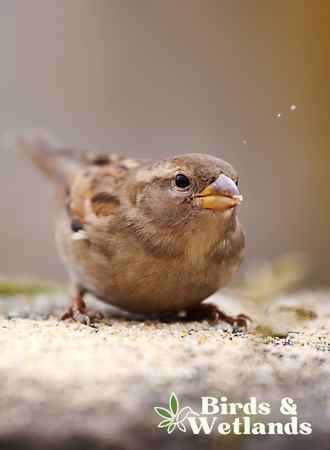
What is Lyme disease?
Lyme disease is a bacterial infection that is spread through the bite of an infected deer tick. It can cause fever, headache, fatigue, and a rash. It can also lead to more serious problems such as arthritis, heart problems, and even death.
Lyme disease is a condition that can be treated with antibiotics, and most people recover fully after completing the course of treatment. In rare cases, however, symptoms may persist for longer periods of time.
What Other Animals Carry Ticks?
Ticks are small, parasitic creatures that feed on the blood of mammals, reptiles, and birds. In the United States, ticks are most commonly associated with deer, but they can also be found on other animals, including rabbits, squirrels, raccoons, and opossums.
In addition, many domesticated animals and family pets can also serve as hosts for ticks, including dogs, cats, and livestock such as cows.
Ticks attach themselves to their host by burrowing into the skin. While this usually isn’t harmful to the animal itself, ticks can transmit diseases from one host to another.
For example, Lyme disease is a potentially serious illness that can be transmitted by ticks. As a result, it’s important to be aware of the potential for other animals to carry ticks and take steps to protect yourself from them.
If you notice ticks spreading on your property or on your pet animals, make sure you get rid of them as soon as possible.

Do Guinea Fowl Eat Ticks?
Guinea fowl have been used for pest control and can help you get rid of your tick problem. They work as a team and will eat pests they can get their beaks on including ticks, fleas, bugs, beetles, crickets, other insects, and some smaller snakes.
When hunting for pests, they will stick their hands into the tall grass and pluck the offending bugs and ticks from plants.

